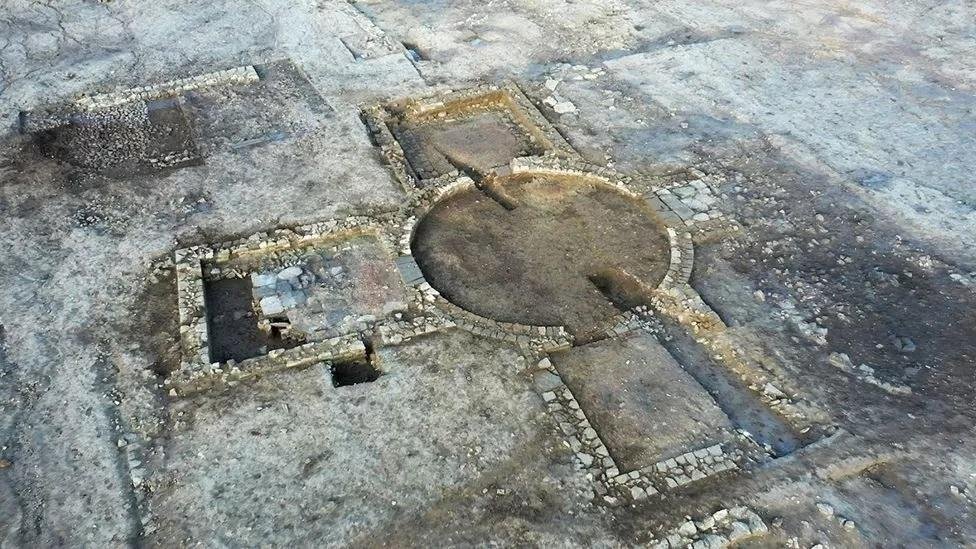An extraordinary Roman villa, believed to be the first of its kind ever found, was unearthed on a construction site but has now been reburied.
 The roman settlement has been labelled one of national interest by historians, Image credit: Map Archaeological Practice
The roman settlement has been labelled one of national interest by historians, Image credit: Map Archaeological Practice
Historic England, a government preservation organization, expects that the move will protect the archeological site for future generations, BBC News reported.
Reburying archaeological sites is a common practice undertaken for various reasons, including financial constraints, protection against vandalism, tourist damage, and weather conditions.
The villa, discovered by Keepmoat Homes, a developer initially planning to build homes on the site, featured a large home with several rooms branching off a central circular room, as well as a bathhouse covering an area approximately equivalent to two tennis courts.
The purpose of the building remains uncertain, but Historic England’s inspector of ancient monuments, Keith Emerick, described it as resembling a Roman version of a stately home, likely owned by someone of wealth and status.
Notably, the layout of the villa was unprecedented in Britain and could potentially be the first of its kind within the former Roman Empire.
Despite the reburial, the area above the villa will remain a public space, accompanied by an interpretive depiction of the historic dwelling.
Speaking to The Guardian, North Yorkshire County spokesperson Karl Battersby said the villa was “designed by the highest-quality architects in northern Europe in the era and constructed by the finest craftsmen.”
The villa’s location was approximately 40 miles away from York, the nearest known provincial capital.
Romans settled in York in 71 CE, and it served as a local seat of government for Roman emperors Septimius Severus (208 and 211 CE) and Constantine the Great (305 CE). The Romans did not completely abandon Britain until the early 5th century CE.





